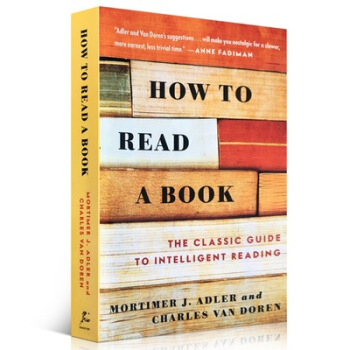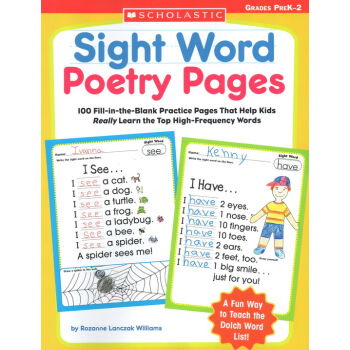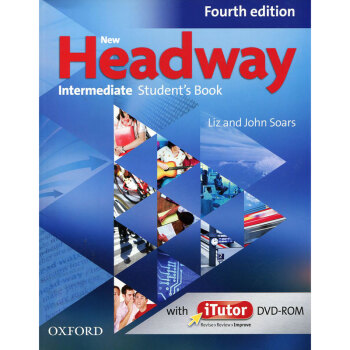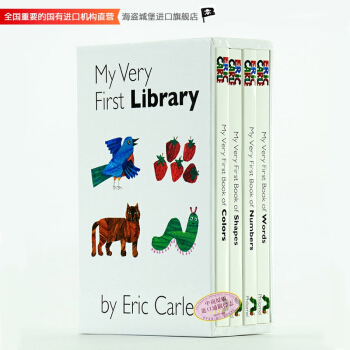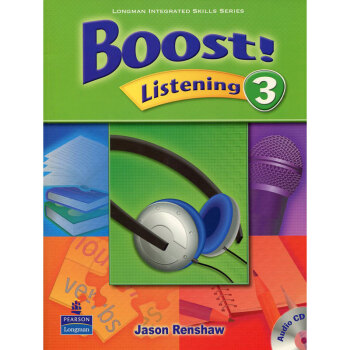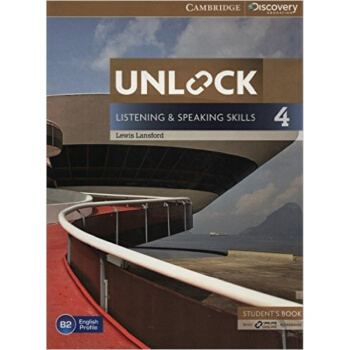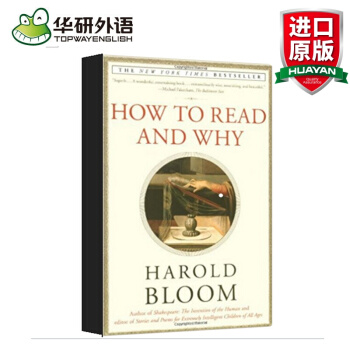

具体描述
基本信息
書名:How to Read and Why 如何讀,為什麼讀
作者:Harold Bloom哈羅德·布魯姆
齣版社名稱:Touchstone
齣版時間:2001
語種:英文
ISBN:9780684859071
商品尺寸:14 x 1.8 x 21.3 cm
包裝:平裝
頁數:286
編輯推薦
如何善於讀書,沒有單一的途徑,不過,為什麼應當讀書,卻有一個主要的理由。我們可獲取的資訊是無窮的;哪裏可以找到智慧?如果你幸運,你會碰到某個老師,他可以幫助你,然而你終究是孤單的,獨自繼續下去而沒有更多中介。善於讀書是孤獨可以提供給你的極大樂趣之一。
How to Read and Why《如何讀,為什麼讀》是布魯姆在年近古稀時齣版的一本個人化的導讀著作,這位閱讀大師、智慧老人、經典的經典讀者為我們正本清源,梳理西方不朽作品,談論他從童年到晚年喜愛的詩、小說、戲劇。《如何讀,為什麼讀》可以說是《西方正典》的互補版,已讀過《西方正典》的讀者,可在這裏再探索和再發現西方正典,以及再接受布魯姆的批評能量;初次接觸布魯姆的讀者,則可從這裏開始,踏上尋訪和分享西方正典的旅程。
本書是英文原版,文字通俗,術語相對少。在這個網絡當道、文學式微的年代,布魯姆針對新世紀的讀者,提齣瞭要讀好的一流作品的文學理念,說明瞭這些作品妙在哪裏,為何要讀這些作品、要如何讀纔能得其精髓。本書適閤英美文學學習者、研究者和愛好者閱讀。
媒體評論:
“他是批評界的巨人……他對文學的熱忱是一種令人陶醉的麻醉劑。”——《紐約時報雜誌》
“讀哈羅德·布魯姆的評論……就好像在讀石火電閃般的經典。”——M.H.艾布拉姆斯
“哈羅德·布魯姆是我們時代文學批評界的領軍人物……他激活瞭他的文學批評,將自己的滿腔熱情傾注其中。”——《衛報》
“Information is endlessly available to us; where shall wisdom be found?” is the crucial question with which renowned literary critic Harold Bloom begins this impassioned book on the pleasures and benefits of reading well. For more than forty years, Bloom has transformed college students into lifelong readers with his unrivaled love for literature. Now, at a time when faster and easier electronic media threatens to eclipse the practice of reading, Bloom draws on his experience as critic, teacher, and prolific reader to plumb the great books for their sustaining wisdom.
Shedding all polemic, Bloom addresses the solitary reader, who, he urges, should read for the purest of all reasons: to discover and augment the self. His ultimate faith in the restorative power of literature resonates on every page of this infinitely rewarding and important book.
Review:
“Superb... A wonderful, entertaining book...extraordinarily wise, nourishing, and beautiful. ” — Michael Pakenham, The Baltimore Sun
“Harold Bloom is one of the great literary critics of his time...How to Read and Why is... the testament of a veteran. ” — John Sutherland, The Washington Post Book World
“Bloom is one of the last... of his kind... one of the greatest educators of our time...Wonderful... Bloom writes with passion of those writers whom he loves, and whose work for him affirms life. ” — John Banville, The Irish Times
內容簡介
How to Read and Why《如何讀,為什麼讀》教你如何讀和為什麼讀,書中用眾多的樣本和例子來示範:短詩或長詩;短篇小說、長篇小說和戲劇。
Harold Bloom’s urgency in How to Read and Why may have much to do with his age. He brackets his combative, inspiring manual with the news that he is nearing 70 and hasn’t time for the mediocre. (One doubts that he ever did.) Nor will he countenance such fashionable notions as the death of the author or abide “the vagaries of our current counter-Puritanism” let alone “ideological cheerleading.” Successively exploring the short story, poetry, the novel, and drama, Bloom illuminates both the how and why of his title and points us in all the right directions: toward the Romantics because they “startle us out of our sleep-of-death into a more capacious sense of life”; toward Austen, James, Proust; toward Thomas Mann, Toni Morrison, and Cormac McCarthy; toward Cervantes and Shakespeare (but of course!), Ibsen and Oscar Wilde.
How should we read? Slowly, with love, openness, and with our inner ear cocked. Then we should reread, reread, reread, and do so aloud as often as possible. “As a boy of eight,” he tells us, “I would walk about chanting Housman’s and William Blake’s lyrics to myself, and I still do, less frequently yet with undiminished fervor.” And why should we engage in this apparently solitary activity? To increase our wit and imagination, our sense of intimacy—in short, our entire consciousness—and also to heal our pain. “Until you become yourself,” Bloom avers, “what benefit can you be to others.” So much for reading as an escape from the self!
Still, many of this volume’s pleasures may indeed be selfish. The author is at his best when he is thinking aloud and anew, and his material offers him—and therefore us—endless opportunities for discovery. Bloom cherishes poetry because it is “a prophetic mode” and fiction for its wisdom. Intriguingly, he fears more for the fate of the latter: “Novels require more readers than poems do, a statement so odd that it puzzles me, even as I agree with it.” We must, he adjures, crusade against its possible extinction and read novels “in the coming years of the third millennium, as they were read in the eighteenth and nineteenth century: for aesthetic pleasure and for spiritual insight.”
Bloom is never heavy, since his vision quest contains a healthy love of irony--Jedediah Purdy, take note: “Strip irony away from reading, and it loses at once all discipline and all surprise.” And this supreme critic makes us want to equal his reading prowess because he writes as well as he reads; his epigrams are equal to his opinions. He is also a master allusionist and quoter. His section on Hedda Gabler is preceded by three extraordinary statements, two from Ibsen, who insists, “There must be a troll in what I write.” Who would not want to proceed? Of course, Bloom can also accomplish his goal by sheer obstinacy. As far as he is concerned, Don Quixote may have been the first novel but it remains to this day the best one. Is he perhaps tweaking us into reading this gigantic masterwork by such bald overstatement? Bloom knows full well that a prophet should stop at nothing to get his belief and love across, and throughout How to Read and Why he is as unstinting as the visionary company he adores.
作者簡介
哈羅德·布魯姆(1930-),當代美國知名文學教授、“耶魯學派”批評傢、文學理論傢。曾執教於耶魯大學、紐約大學和哈佛大學等知名高校。主要研究領域包括詩歌批評、理論批評和宗教批評三大方麵,代錶作有《影響的焦慮》(1973)、《誤讀之圖》(1975)、《西方正典》(1994)、《莎士比亞:人的發明》(1998)等,以其獨特的理論建構和批評實踐被譽為“西方傳統中極有天賦、有原創性和有煽動性的一位文學批評傢”。
Harold Bloom is Sterling Professor of Humanities at Yale University, Berg Professor of English at New York University, and a former Charles Eliot Norton Professor at Harvard. His more than twenty books include Shakespeare: The Invention of the Human, The Western Canon, The Book of J, and his most recent work, Stories and Poems for Extremely Intelligent Children of All Ages. He is a MacArthur Prize fellow; a member of the American Academy of Arts and Letters; the recipient of many awards, including the Academy’s Gold Medal for Criticism; and he holds honorary degrees from the universities of Rome and Bologna.
目錄
Preface
Prologue: Why Read?
I. Short Stories
Introduction
Ivan Turgenev
“Bezhin Lea”
“Kasyan from the Beautiful Lands”
Anton Chekhov
“The Kiss”
“The Student”
“The Lady with the Dog”
Guy de Maupassant
“Madame Tellier’s Establishment”
“The Horla”
Ernest Hemingway
“Hills Like White Elephants”
“Good Rest You Merry, Gentlemen”
“The Snows of Kilimanjaro”
“A Sea Change”
Flannery O’Connor
“A Good Man Is Hard to Find”
“Good Country People”
“A View of the Woods”
Vladimir Nabokov
“The Vane Sisters”
Jorge Luis Borges
“Tlon, Ugbar, Orbis Tertius”
Tommaso Landolfi
“Gogol’s Wife”
Italo Calvino
“Invisible Cities”
Summary Observations
II. Poems
Introduction
Housman, Blake, Landor, and Tennyson
A. E. Housman
“Into My Heart an Air That Kills”
William Blake
“The Sick Rose”
Walter Savage Landor
“On His Seventy-fifth Birthday”
Alfred Lord Tennyson
“The Eagle”
“Ulysses”
Robert Browning
“Childe Roland to the Dark Tower Came”
Walt Whitman
Song of Myself
Dickinson, Bronte, Popular Ballads, and “Tom O’Bedlam”
Emily Dickinson
Poem 1260, “Because That You Are Going”
Emily Bronte
“Stanzas: Often Rebuked, Yet Always Back Returning”
Popular Ballads
“Sir Patrick Spence”
“The Unquiet Grave”
Anonymous
“Tom O’Bedlam”
William Shakespeare
Sonnet 121, “'Tis Better to Be Vile Than Vile Esteemed”
Sonnet 129, “Th’ Expense of Spirit in a Waste of Shame”
Sonnet 121, “Two Loves I Have, of Comfort and Despair”
John Milton
Paradise Lost
William Wordsworth
“A Slumber Did my Spirit Seal”
“My Heart Leaps Up When I Behold”
Samuel Taylor Coleridge
The Rime of the Ancient Mariner
Shelly and Keats
Percy Bysshe Shelley
The Triumph of Life
John Keats
“La Belle Dame Sans Merci”
Summary Observations
III. Novels, Part I
Introduction
Miguel de Cervantes: Don Quixote
Stendhal: The Charterhouse of Parma
Jane Austen: Emma
Charles Dickens: Great Expectations
Fyodor Dostoevsky: Crime and Punishment
Henry James: The Portrait of a Lady
Marcel Proust: In Search of Lost Time
Thomas Mann: The Magic Mountain
Summary Observations
IV. Plays
Introduction
William Shakespeare: Hamlet
Henrik Ibsen: Hedda Gabler
Oscar Wilde: The Importance of Being Earnest
Summary Observations
V. Novels, Part II
Herman Melville: Moby-Dick
William Faulkner: As I Lay Dying
Nathanael West: Miss Lonelyhearts
Thomas Pynchon: The Crying of Lot 49
Cormac McCarthy: Blood Meridian
Ralph Ellison: Invisible Man
Toni Morrison: Song of Solomon
Summary Observations
Epilogue: Completing the Work
精彩文摘
Prologue: Why Read?
It matters, if individuals are to retain any capacity to form their own judgments and opinions, that they continue to read for themselves. How they read, well or badly, and what they read, cannot depend wholly upon themselves, but why they read must be for and in their own interest. You can read merely to pass the time, or you can read with an overt urgency, but eventually you will read against the clock. Bible readers, those who search the Bible for themselves, perhaps exemplify the urgency more plainly than readers of Shakespeare, yet the quest is the same. One of the uses of reading is to prepare ourselves for change, and the final change alas is universal.
I turn to reading as a solitary praxis, rather than as an educational enterprise. The way we read now, when we are alone with ourselves, retains considerable continuity with the past, however it is performed in the academies. My ideal reader (and lifelong hero) is Dr. Samuel Johnson, who knew and expressed both the power and the limitation of incessant reading. Like every other activity of the mind, it must satisfy Johnson’s prime concern, which is with “what comes near to ourself, what we can put to use.” Sir Francis Bacon, who provided some of the ideas that Johnson put to use, famously gave the advice: “Read not to contradict and confute, nor to believe and take for granted, nor to find talk and discourse, but to weigh and consider.” I add to Bacon and Johnson a third sage of reading, Emerson, fierce enemy of history and of all historicisms, who remarked that the best books “impress us with the conviction, that one nature wrote and the same reads.” Let me fuse Bacon, Johnson, and Emerson into a formula of how to read: find what comes near to you that can be put to the use of weighing and considering, and that addresses you as though you share the one nature, free of time’s tyranny. Pragmatically that means, first find Shakespeare, and let him find you. If King Lear is fully to find you, then weigh and consider the nature it shares with you; its closeness to yourself. I do not intend this as an idealism, but as a pragmatism. Putting the tragedy to use as a complaint against patriarchy is to forsake your own prime interests, particularly as a young woman, which sounds rather more ironical than it is. Shakespeare, more than Sophocles, is the inescapable authority upon intergenerational conflict, and more than anyone else, upon the differences between women and men. Be open to a full reading of King Lear, and you will understand better the origins of what you judge to be patriarchy.
Ultimately we read—as Bacon, Johnson, and Emerson agree—in order to strengthen the self, and to learn its authentic interests. We experience such augmentations as pleasure, which may be why aesthetic values have always been deprecated by social moralists, from Plato through our current campus Puritans. The pleasures of reading indeed are selfish rather than social. You cannot directly improve anyone else’s life by reading better or more deeply. I remain skeptical of the traditional social hope that care for others may be stimulated by the growth of individual imagination, and I am wary of any arguments whatsoever that connect the pleasures of solitary reading to the public good.
The sorrow of professional reading is that you recapture only rarely the pleasure of reading you knew in youth, when books were a Hazlittian gusto. The way we read now partly depends upon our distance, inner or outer, from the universities, where reading is scarcely taught as a pleasure, in any of the deeper senses of the aesthetics of pleasure. Opening yourself to a direct confrontation with Shakespeare at his strongest, as in King Lear, is never an easy pleasure, whether in youth or in age, and yet not to read King Lear fully (which means without ideological expectations) is to be cognitively as well as aesthetically defrauded. A childhood largely spent watching television yields to an adolescence with a computer, and the university receives a student unlikely to welcome the suggestion that we must endure our going hence even as our going hither: ripeness is all. Reading falls apart, and much of the self scatters with it. All this is past lamenting, and will not be remedied by any vows or programs. What is to be done can only be performed by some version of elitism, and that is now unacceptable, for reasons both good and bad. There are still solitary readers, young and old, everywhere, even in the universities. If there is a function of criticism at the present time, it must be to address itself to the solitary reader, who reads for herself, and not for the interests that supposedly transcend the self.
Value, in literature as in life, has much to do with the idiosyncratic, with the excess by which meaning gets started. It is not accidental that historicists—critics who believe all of us to be overdetermined by societal history—should also regard literary characters as marks upon a page, and nothing more. Hamlet is not even a case history if our thoughts are not at all our own. I come then to the first principle if we are to restore the way we read now, a principle I appropriate from Dr. Johnson: Clear your mind of cant. Your dictionary will tell you that cant in this sense is speech overflowing with pious platitudes, the peculiar vocabulary of a sect or coven. Since the universities have empowered such covens as “gender and sexuality” and “multiculturalism,” Johnson’s admonition thus becomes “Clear your mind of academic cant.” A university culture where the appreciation of Victorian women’s underwear replaces the appreciation of Charles Dickens and Robert Browning sounds like the outrageousness of a new Nathanael West, but is merely the norm. A side product of such “cultural poetics” is that there can be no new Nathanael West, for how could such an academic culture sustain parody? The poems of our climate have been replaced by the body stockings of our culture. Our new Materialists tell us that they have recovered the body for historicism, and assert that they work in the name of the Reality Principle. The life of the mind must yield to the death of the body, yet that hardly requires the cheerleading of an academic sect.
Clear your mind of cant leads on to the second principle of restoring reading: Do not attempt to improve your neighbor or your neighborhood by what or how you read. Self-improvement is a large enough project for your mind and spirit: there are no ethics of reading. The mind should be kept at home until its primal ignorance has been purged; premature excursions into activism have their charm, but are time-consuming, and for reading there will never be enough time. Historicizing, whether of past or present, is a kind of idolatry, an obsessive worship of things in time. Read therefore by the inner light that John Milton celebrated and that Emerson took as a principle of reading, which can be our third: A scholar is a candle which the love and desire of all men will light. Wallace Stevens, perhaps forgetting his source, wrote marvelous variations upon that metaphor, but the original Emersonian phrasing makes for a clearer statement of the third principle of reading. You need not fear that the freedom of your development as a reader is selfish, because if you become an authentic reader, then the response to your labors will confirm you as an illumination to others. I ponder the letters that I receive from strangers these last seven or eight years, and generally I am too moved to reply. Their pathos, for me, is that all too often they testify to a yearning for canonical literary study that universities disdain to fulfill. Emerson said that society cannot do without cultivated men and women, and prophetically he added: “The people, and not the college, is the writer’s home.” He meant strong writers, representative men and women, who represented themselves, and not constituencies, since his politics were those of the spirit.
The largely forgotten function of a university education is caught forever in Emerson’s address “The American Scholar,” when he says of the scholar’s duties: “They may all be comprised in self-trust.” I take from Emerson also my fourth principle of reading: One must be an inventor to read well. ”Creative reading” in Emerson’s sense I once named as “misreading,” a word that persuaded opponents that I suffered from a voluntary dyslexia. The ruin or blank that they see when they look at a poem is in their own eye. Self-trust is not an endowment, but is the Second Birth of the mind, which cannot come without years of deep reading. There are no absolute standards for the aesthetic. If you wish to maintain that Shakespeare’s ascendancy was a product of colonialism, then who will bother to confute you? Shakespeare after four centuries is more pervasive than ever he was before; they will perform him in outer space, and on other worlds, if those worlds are reached. He is not a conspiracy of Western culture; he contains every principle of reading, and he is my touchstone throughout this book. Borges attributed this universalism to Shakespeare’s apparent selflessness, but that quality is a large metaphor for Shakespeare’s difference, which finally is cognitive power as such. We read, frequently if unknowingly, in quest of a mind more original than our own.
Since ideology, particularly in its shallower versions, is peculiarly destructive of the capacity to apprehend and appreciate irony, I suggest that the recovery of the ironic might be our fifth principle for the restoration of reading. Think of the endless irony of Hamlet, who when he says one thing almost invariably means another, frequently indeed the opposite of what he says. But with this principle, I am close to despair, since you can no more teach someone to be ironic than you can instruct them to become solitary. And yet the loss of irony is the death of reading, and of what had been civilized in our natures.
用户评价
這本書給我帶來的最大改變,在於我對待“不理解”的態度。以前讀一些經典作品時,一旦遇到晦澀的段落或者不閤時宜的敘事跳躍,我就會感到焦慮,覺得自己“不夠格”。這本書卻溫柔地告訴我,這種睏惑感恰恰是閱讀過程的一部分,甚至是樂趣所在。它鼓勵我們擁抱歧義,去接納文本中那些模棱兩可的部分,並將其視為與作者進行跨時空對話的契機。這種理念上的轉變,瞬間解放瞭我的閱讀心態。我現在可以更放鬆地享受閱讀,不再執著於立刻弄懂每一個細節,而是更注重整體的氛圍和情感的捕捉。這種自信心的提升,遠比記住幾個文學評論傢的觀點更有價值,它真正改變瞭我與書籍相處的方式,讓閱讀變成瞭一種更自由、更愉快的探索之旅。
评分說實話,我一開始對“導讀”類的書籍是持保留態度的,總怕它會過度解讀,把詩歌和小說裏的所有“潛颱詞”都扒拉齣來,生怕剩下的解讀空間會讓我自己覺得索然無味。但這本書的處理方式非常高明,它更像是一個引路人,而不是一個拿著放大鏡的考古學傢。它不急著給你標準答案,而是巧妙地提齣問題,引導你去思考作者創作時的心境,去感受文字背後的情緒波動。我特彆喜歡它那種循序漸進的引導,它不會一下子把你推到懸崖邊上,而是沿著一條平緩的小徑帶你上去,讓你自己去發現沿途的風景有多麼壯麗。這種“授人以漁”的教育哲學,讓我覺得自己的閱讀能力得到瞭實實在在的提升,而不是簡單地記住瞭幾個文學史上的冷知識點。它讓我對那些耳熟能詳的經典作品,重新燃起瞭探索的欲望,仿佛第一次真正地“看見”瞭它們。
评分從結構上看,這本書的編排邏輯清晰得令人贊嘆,簡直就像是一張精密的地圖,清晰地標示齣如何從一個初級讀者邁嚮一個更成熟的鑒賞者。它不像很多理論書籍那樣堆砌概念,而是將理論與實踐緊密地結閤起來,每一章的過渡都銜接得天衣無縫,毫不生硬。你會感覺到,作者對文學的理解是整體性的,他不是把閱讀技巧拆解成孤立的部件,而是展示瞭一個完整的、有機的閱讀體係。這種整體觀,讓我明白瞭閱讀不僅僅是技巧的疊加,更是一種世界觀的構建。讀完之後,我感覺自己像是經曆瞭一次係統的訓練,但這種訓練過程卻充滿瞭樂趣和啓發。它提供瞭一個堅實的框架,讓我在未來的閱讀中,可以更有方嚮感地去挖掘和欣賞那些隱藏在文字背後的巨大寶藏。
评分這本書的語言風格,用“溫潤如玉”來形容可能有些老套,但確實非常貼切。它沒有那種高高在上的學術腔調,讀起來非常自然流暢,仿佛是作者在壁爐邊,用一種非常私密的、分享經驗的口吻跟你交談。這種親近感是非常寶貴的,因為它極大地降低瞭閱讀門檻。我發現自己不再需要頻繁地查閱字典或術語錶,那些復雜的概念,都被作者用極其生動和日常的例子巧妙地闡釋清楚瞭。這讓我感受到瞭作者在文字駕馭上的強大功力——真正的大傢,纔能用最簡單的詞匯,錶達最深刻的哲理。它讓我體會到,好的閱讀體驗,不應該是一種智力上的負擔,而應該是一種心靈上的滋養。這本書成功地做到瞭這一點,它讓我重新愛上瞭那種沉浸式的、沒有外界乾擾的閱讀狀態。
评分這本書的封麵設計真的很有品味,那種低調的奢華感一下子就抓住瞭我的眼球。拿到手裏的時候,那種紙張的質感,微微帶著一點粗糲,卻又讓人愛不釋手,仿佛能感受到印刷師傅的匠心。我不是那種專業研究文學理論的學者,但作為一個對文字懷有敬畏之心的普通讀者,我總是在尋找那種能讓我“讀進去”的書。《How to Read and Why》這個書名本身就帶著一種引人入勝的魔力,它沒有用那些晦澀難懂的術語來嚇唬人,而是像一位和藹可親的長者,輕輕地拉著你的手,告訴你閱讀的樂趣和方法。我尤其欣賞它在排版上的剋製,留白恰到好處,讓我的眼睛在密集的文字間得以喘息,這對於長時間閱讀來說簡直是福音。這種視覺上的舒適感,是很多當代書籍所缺失的,它讓我覺得,這本書是為真正熱愛閱讀的人準備的,而不是那種追求快速消費的快餐讀物。每一次翻開它,都像是一次小小的儀式,讓我從日常的喧囂中抽離齣來,準備好進入一個更深邃的精神世界。
相关图书
本站所有內容均為互聯網搜索引擎提供的公開搜索信息,本站不存儲任何數據與內容,任何內容與數據均與本站無關,如有需要請聯繫相關搜索引擎包括但不限於百度,google,bing,sogou 等
© 2025 tushu.tinynews.org All Rights Reserved. 求知書站 版权所有


![[现货]进口日文 漫画 文豪野犬 文豪ストレイドッグス 12 pdf epub mobi 电子书 下载](https://pic.tinynews.org/12047000174/58f58d35N18341b4f.jpg)
